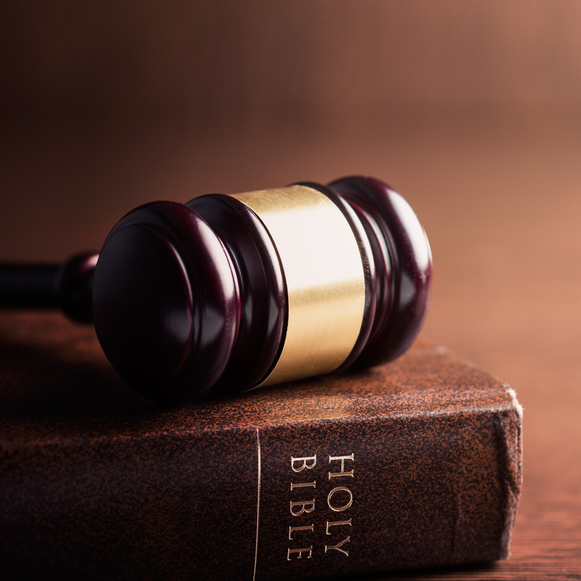Supreme Court refuses to block restrictions on Nevada churches in 5-4 vote

Image from Shutterstock.com.
The U.S. Supreme Court on Friday night rejected an emergency request by a Nevada church to block a 50-person limit on attendance at worship services.
Chief Justice John G. Roberts Jr. was among the five justices who declined to issue an injunction, report the Washington Post, the New York Times and SCOTUSblog.
Justices Samuel A. Alito Jr., Clarence Thomas, Brett M. Kavanaugh and Neil M. Gorsuch dissented in three different dissents.
Calvary Chapel Dayton Valley had contended that Nevada’s COVID-19 restrictions treated casinos and other establishments better than churches.
Casinos, gyms, restaurants, bars, indoor amusement parks, bowling alleys, water parks, pools and arcades are allowed to operate at 50% of fire-code capacity in Nevada, Calvary Chapel argued in its brief. But worship services are limited to 50 people, no matter what size the facility.
Calvary Chapel wanted to host socially distanced church services for about 90 people, which amounts to 50% of its fire-code capacity. The church was seeking an injunction pending appeal. Its brief included a June 4 photo showing a crowd of unmasked people in downtown Las Vegas.
Alito’s dissent was joined by Thomas and Kavanaugh.
“The Constitution guarantees the free exercise of religion,” Alito wrote. “It says nothing about the freedom to play craps or blackjack, to feed tokens into a slot machine, or to engage in any other game of chance.”
Alito said that, at the outset of an emergency, “it may be appropriate for courts to tolerate very blunt rules. In general, that is what has happened thus far during the COVID-19 pandemic. But a public health emergency does not give governors and other public officials carte blanche to disregard the Constitution for as long as the medical problem persists. … The problem is no longer one of exigency, but one of considered yet discriminatory treatment of places of worship.”
Nevada had cited the Supreme Court’s May 29 refusal to block a California law limiting church attendance. Roberts also voted with the court’s four liberal justices in that case to keep in place restrictions that limited attendance at worship services to 25% of building capacity or a maximum of 100 people.
Roberts wrote a concurring opinion in the California case that was not joined by the other justices. He said California applied similar or more severe restrictions to secular gatherings that included lectures, concerts, movie showings, spectator sports and theatrical performances.
Nevada also treated churches better than lectures, concerts, sporting events and plays, the state had argued.
The Nevada case is Calvary Chapel Dayton Valley v. Sisolak.



